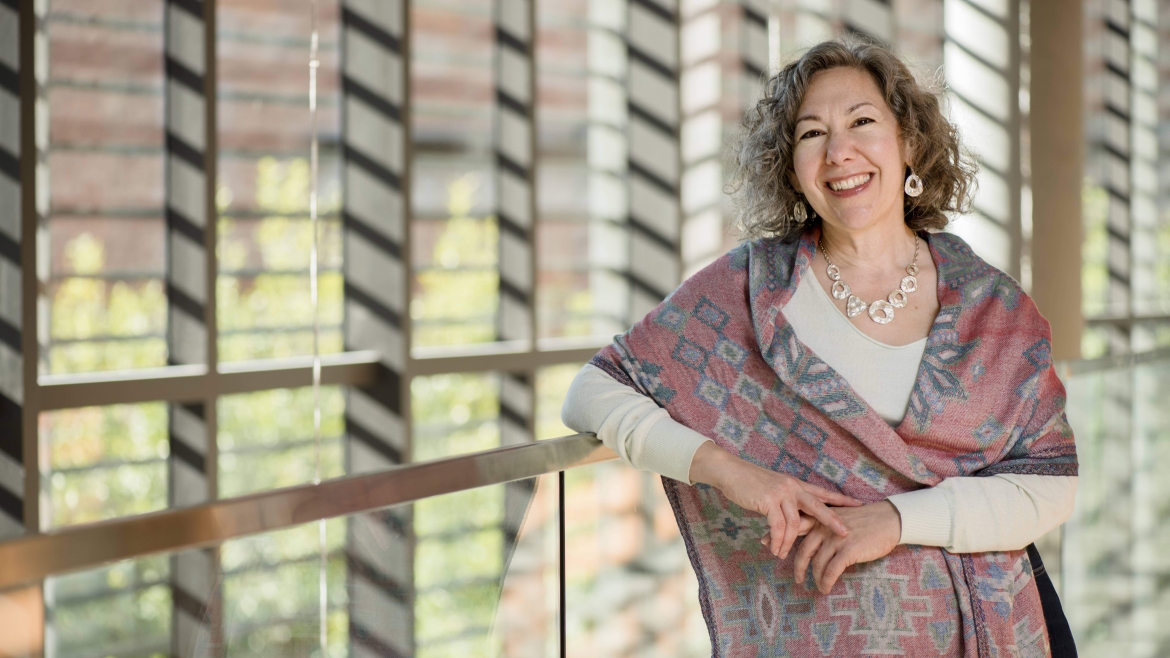Vanishing book to appear at ASU-hosted literature, science and arts conference

A unique literary project is capturing attention for its disappearing act.
"Voidopolis," a first-of-its-kind digital book series published through ASU Media Enterprise’s Leonardo/ISAST and MIT Press, is an augmented reality presentation with a limited lifespan. A story about loss and memory loosely based on Danté’s "Inferno," "Voidopolis" was designed to slowly vanish over the course of a year, offering an extraordinary experience that marries technology and literature.
Diana Ayton-Shenker
It will be a focal point at the upcoming Alien 2023 Society for Literature, Science and the Arts (SLSA) conference to be held at Arizona State University Oct. 26–29.
"'Voidopolis' encapsulates the limitless frontiers of literature, technology and artistry — the very pillars upon which Leonardo was built,” said Diana Ayton-Shenker, CEO of Leonardo/ISAST and executive director of Leonardo's partnership with ASU. “Its presence at the SLSA conference serves as a testament to the ever-evolving landscape of creative expression and how we explore it in the digital age."
Through the authorship of transmedia playwright Kat Mustatea, "Voidopolis" was adapted from a series of Instagram posts that were ultimately deleted. The book presents a narrator's dystopic experience of wandering through New York City during the pandemic with the help of a drifter. Its pages, which decay over the period of a year, can only be deciphered with an AR app. A printed book with unintelligible pages remains at the end of the decay cycle. The book resets again each July 1st to begin a new cycle of vanishing.
"By design, the digital AR components are unstable and contingent," said Mustatea. "The book threatens to disappear. But the reward of this delicate setup — and I think this an important aspect of the poetics of 'Voidopolis' — is that you witness the book’s deterioration over time along with every other reader, in real time, worldwide. I think of 'Voidopolis' as a performative object rather than a book, because the AR components work to reproduce the sensation of loss rather than merely illustrate or describe that loss."
Nominated for the prestigious 2023 Lumen Prize, "Voidopolis" is part of Leonardo’s long-running book series published in partnership with MIT Press. The Leonardo Book Series includes books by artists, scientists, researchers and scholars that present innovative discourse on the convergence of art, science and technology.
"We are proud of our 30-year-long partnership with MITP, not only publishing Leonardo, the world’s leading art-science journal, but also our critically acclaimed book series, which has brought over 70 books of in-depth insight and cutting-edge scholarship to light," Ayton-Shenker said.
A physical copy of "Voidopolis" will be on display during the SLSA conference at ASU’s Neeb Hall on Oct. 27. Ayton-Shenker will open the session and introduce the book at the event.
Hosted by the Center for Philosophical Technologies and the School of Arts, Media and Engineering at ASU, the 2023 SLSA conference revolves around the broadly defined theme of "alien," inviting papers, panels and presentations that engage with the theme and other SLSA topics. Keynote speakers will include Karen Barad, a scholar of feminist studies and quantum field theory at the University of California at Santa Cruz, science fiction author and ASU creative writing Professor of Practice Nnedi Okorafor, and ASU astrobiologist and theoretical physicist Sara Walker.
Top photo by Kat Mustatea
More Science and technology

How AI is changing college
Artificial intelligence is the “great equalizer,” in the words of ASU President Michael Crow.It’s compelled industries, including higher education, to adapt quickly to keep pace with its rapid…

The Dreamscape effect
Written by Bret HovellSeventh grader Samuel Granado is a well-spoken and bright student at Villa de Paz Elementary School in Phoenix. But he starts out cautiously when he describes a new virtual…

Research expenditures ranking underscores ASU’s dramatic growth in high-impact science
Arizona State University has surpassed $1 billion in annual research funding for the first time, placing the university among the top 4% of research institutions nationwide, according to the latest…


